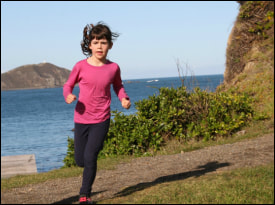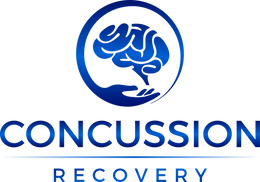|
This is an unusual case study as the child who fell is my daughter. I was able to assess and treat her immediately. If your child falls and hits their head it is important to go immediately to your GP or Accident and Emergency for concussion/TBI assessment. Then once their condition is stable you may like to look at complementary treatment options. A Brief Case Study: Seven year old girl fell 3.5 metres vertically onto her head in the April school holidays Said she felt ‘sleepy’ at first (then yelled and cried loudly) Osteopathic assessment took place less than five minutes after the injury. The whole top of her head felt very slightly depressed and her cervical spine was side-bent to the left and locked. Neurologically all tests appeared clear. Gentle treatment of the neck and head to assist normal range of motion and function of the membranous tissue of her cranium resulted in her feeling ‘fine’. She was running around happy so there was no indication that she needed a CT scan. However, two hours later during a walk up a hill she had a headache, so we suspected concussion and she went in the mild Hyperbaric Oxygen chamber. This works by reducing the oedema in the brain tissues and also supplies 5-7 times the usual amount of oxygen to the mitochondria of the neurones which enables more of them to start firing again. This quickly cleared the headache during the session. She also had some symptoms involving feeling unusual anger and fatigue, also indicating a concussion Daily osteopathic and mild hyperbaric oxygen sessions for the next three days kept her feeling symptom free and six days after her fall she won her school’s year 3 and 4 cross country trial, even against the boys! She has continued to be well now, one year on in April 2017. City Osteopaths and City Hyperbaric are well placed to help people of all ages, in conjunction with their concussion healthcare team. Our Reg Osteopaths are able to gently treat any neck, shoulder and back strains that may have occurred and the hyperbaric oxygen therapy reduces brain oedema or swelling and provides the extra oxygen required by injured brain tissue to help the mitochondria to make the energy required to heal damaged or dormant tissue and help restore function. Ideally, as in this case, we are able to treat the neck injury and concussion as soon as possible after medical assessment after the accident. We like to work in with the concussion care team to help your child make a full recovery. If the concussion occurred many years before it is probably going to take longer to improve or resolve. Below is some research for the use of Hyperbaric Oxygen in concussion for children: “Role of Hyperbaric Oxygen Therapy in Severe Head Injury in Children” —Journal of Pediatric Neuroscience. 2012 Jan-April 7(1) 4-8 www.ncbi.nlm.nih.gov/pmc/articles/PMC3401652/ Conclusion: In children with traumatic brain injury, the addition of HBOT significantly improved outcome and quality of life and reduced risk of complications. Patients receiving HBOT were significantly better than the control group with decreased hospital stay, better Glasgow Coma Scale and drastic reduction in disability. “Hyperbaric Oxygen Therapy can improve Post Concussion Syndrome years after Mild Traumatic Brain Injury – Randomised Prospective Trial” www.ncbi.nlm.nih.gov/pubmed/24260334 —PLoS One November 2013 10.137/journal.pone 0079995 Conclusion: Convincing results based on a crossover study, demonstrating that HBOT can induce neuroplasticity and significant brain function improvement in mild TBI patients with prolonged Post-Concussion-Syndrome at late chronic stage, years after injury. The findings here bear the promises that HBOT can be effective in treating other brain impairments like PTSD or repairing radiation damage. It is reasonable to expect that HBOT can help slow down or even reverse metabolic disorders associated with neurodegenerative diseases. Please check out our website links below for more information or give us a call on 04 4991439 www.cityosteopaths.co.nz www.cityhyperbaric.co.nz
0 Comments
Leave a Reply. |
AuthorEvidence-based Concussion and Post-Concussion Syndrome (PCS) Complete Assessment and Recovery Action Plan in Wellington ArchivesCategories |
|
For Wellington's Premier Concussion Recovery Care Clinic,
Call (04) 499 1439 to Make an Appointment |
|
Web design by: SBWD
|

 RSS Feed
RSS Feed




